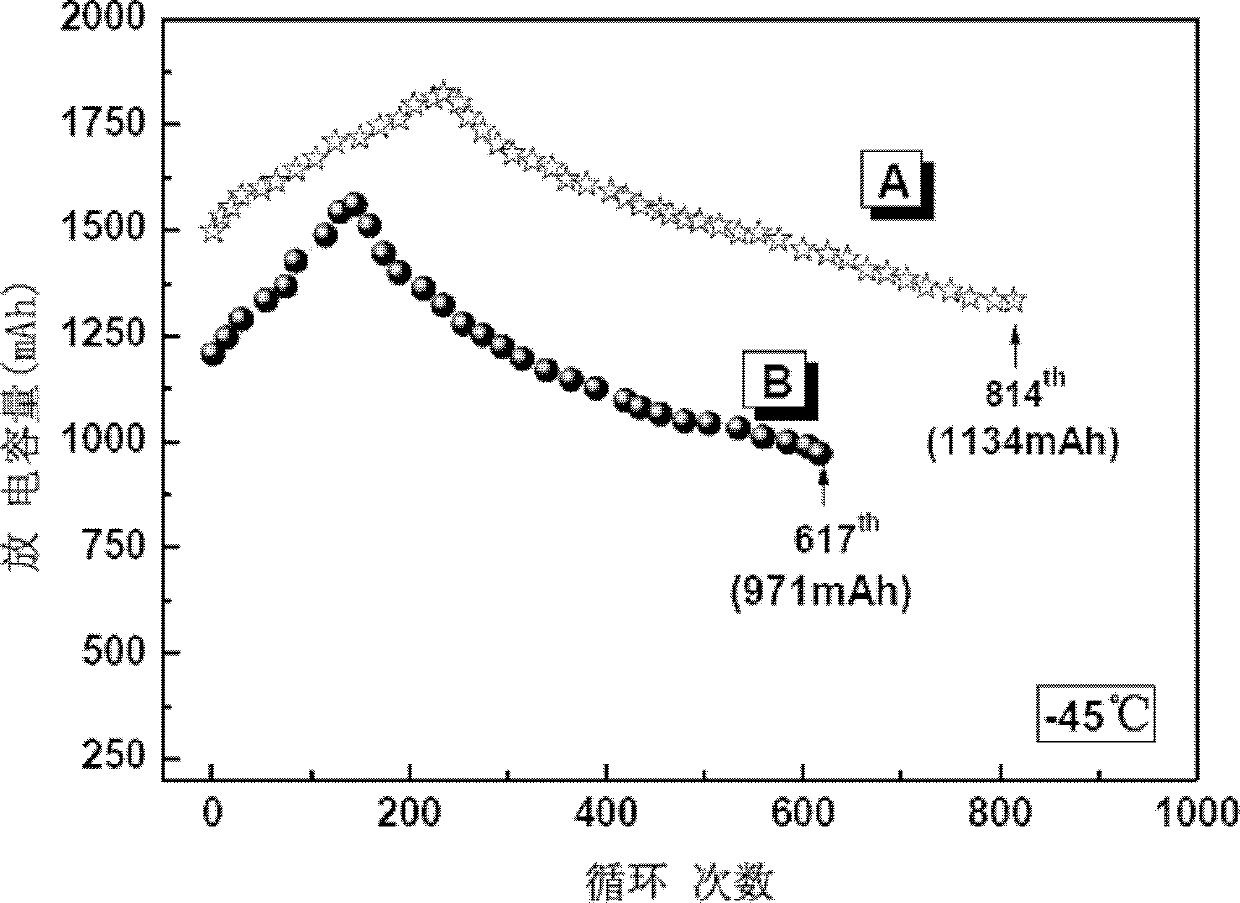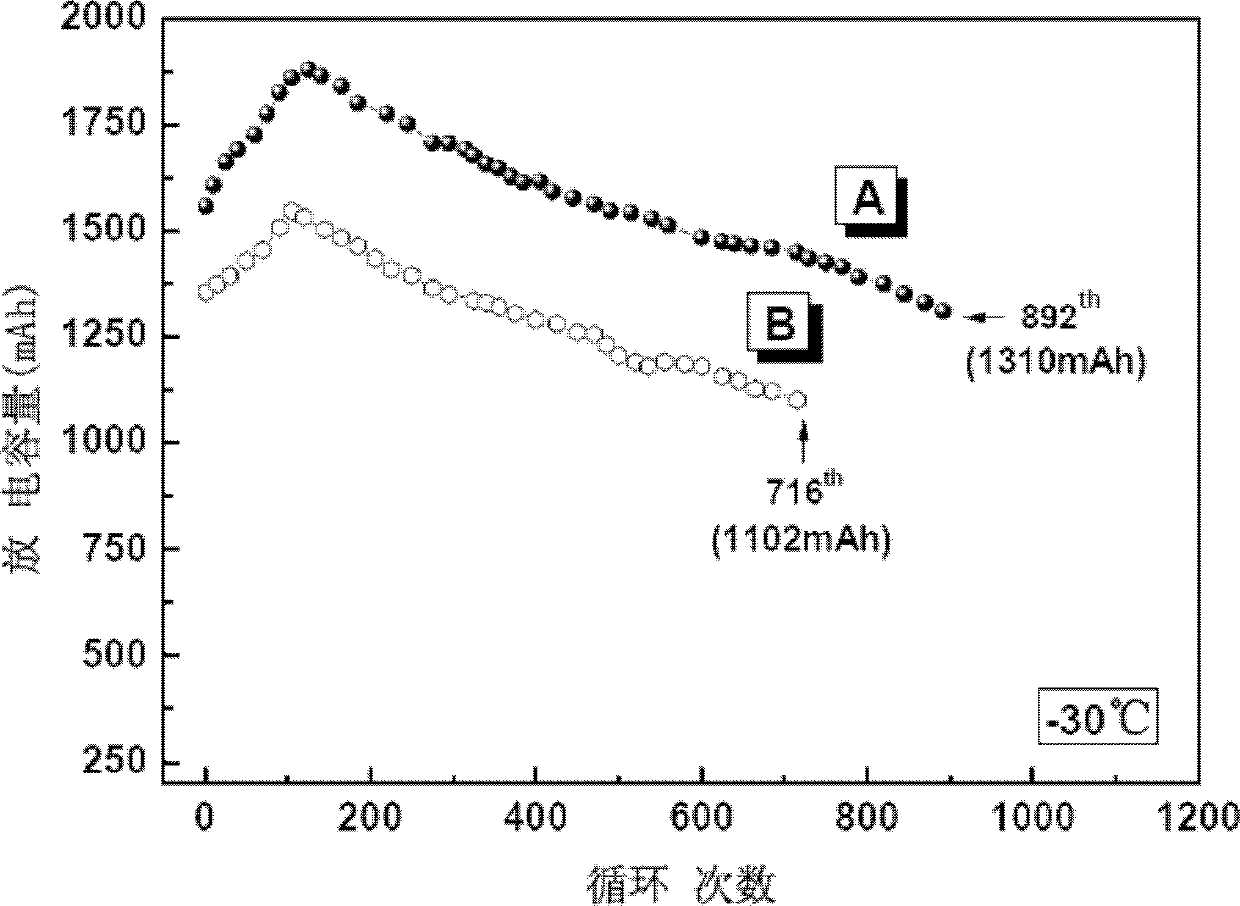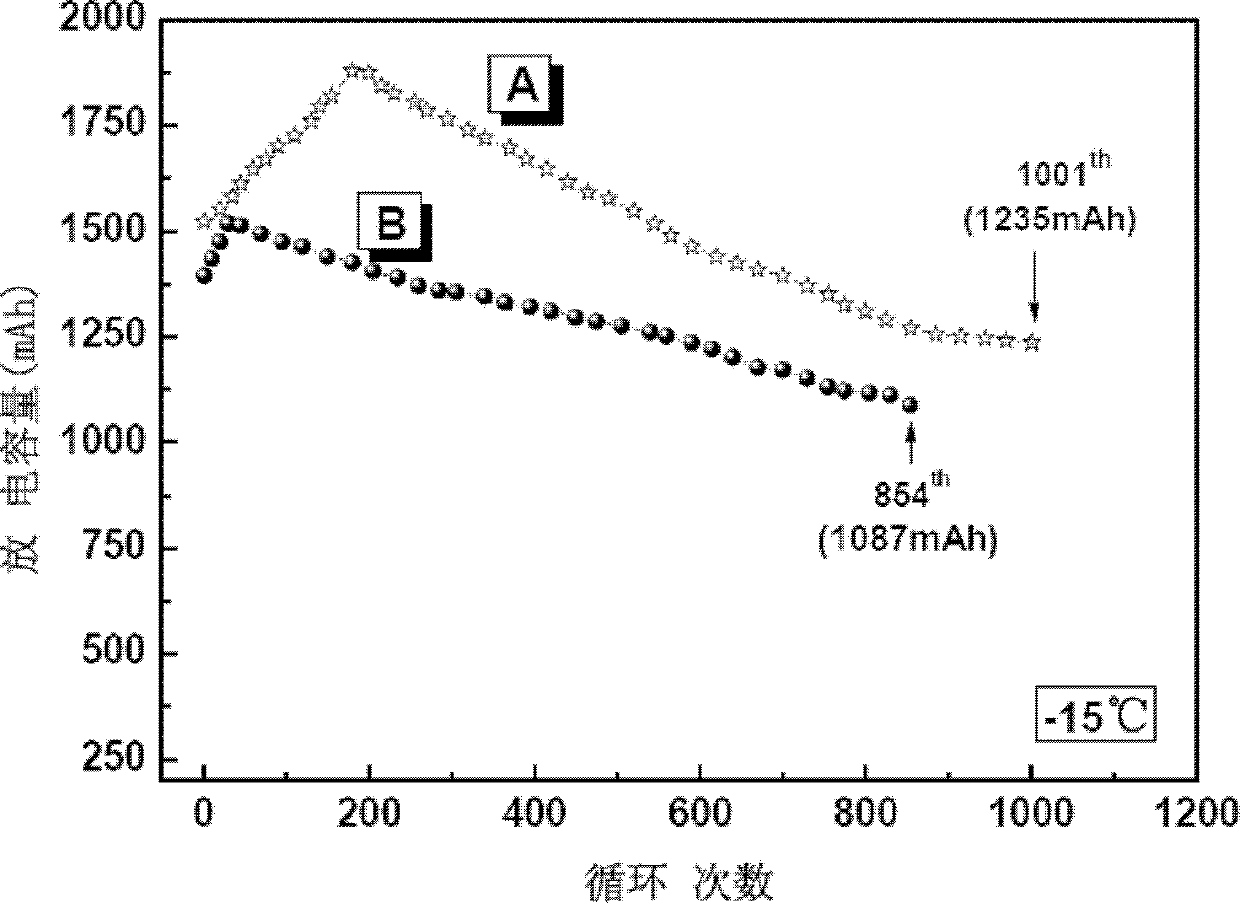Electrolyte for lithium ion battery and preparation method thereof
A lithium-ion battery and electrolyte technology, applied in secondary batteries, circuits, electrical components, etc., can solve the problem of battery storage capacity attenuation, poor working performance, electrolyte conductivity, compatibility, electrode charge-discharge performance, and cycle life of batteries. Safety impact and other issues, to achieve the effect of reducing the change of crystal morphology, improving the operating temperature range, and good anti-overcharge performance
- Summary
- Abstract
- Description
- Claims
- Application Information
AI Technical Summary
Problems solved by technology
Method used
Image
Examples
Embodiment 1
[0043] A preparation method of lithium ion battery electrolyte, the steps are:
[0044] In the first step, under the condition of vacuum or inert gas protection, it will be a mixture of the main solvents EC, DEC, VEC (ethylene ethylene carbonate) mixed in volume ratio, and the solvent additive HMDS (六甲 A mixture of three types, DECP (diethyl (cyanomethyl) carboxylate), and TS (propylene sulfate), each with a mass ratio of 5% of the solvent and dried in advance to a constant weight Desiccant lithium oxide (Li 2 O) Mix, stir for 4 hours, filter to remove the precipitation of lithium oxide and lithium hydroxide, and ensure that the water content in the solvent is less than 10 ppm.
[0045] In the second step, the main solvent mixed in the same volume ratio dried in the first step is mixed with the dried solvent additive which accounts for 0.1% of the main solvent volume, and the mixture is uniformly mixed under the condition of vacuum or inert gas protection to obtain electrolysis. Li...
Embodiment 2
[0050] A preparation method of lithium ion battery electrolyte, the steps are:
[0051] In the first step, under the protection of vacuum or inert gas, the three main solvents EC, DEC, BS (butene sulfite) mixed in equal volume ratio, and the solvent additive HMDS (六甲 A mixture of three silylamine, TS (propylene sulfate), and CDE (methylene disulfonate), respectively, with a mass ratio of 5% of the solvent, vacuum dried to a constant weight of the desiccant lithium oxide ( Li 2 O) Mix, stir for 4 hours, filter to remove lithium oxide and lithium hydroxide precipitates.
[0052] In the second step, the main solvent mixed in the same volume ratio dried in the first step is mixed with the dried solvent additive which accounts for 0.1% of the main solvent volume, and the mixture is uniformly mixed under the condition of vacuum or inert gas protection to obtain electrolysis. Liquid solvent.
[0053] The third step is to dry the LiPF of the main electrolyte with a molar ratio of 0.6:0.1:0....
Embodiment 3
[0057] A preparation method of lithium ion battery electrolyte, the steps are:
[0058] In the first step, under the protection of vacuum or inert gas, mix the main solvent of the mixture of DMC, 1.3-PS, BS (butene sulfite) mixed in equal volume ratio, and DECP (diethyl sulfite) mixed in equal volume ratio. (Cyanomethyl) sulfonate), TS (propylene sulfate), CDE (methylene disulfonate) mixture solvent additive, and the mass ratio of the solvent is 4% before vacuum drying to constant weight drying Lithium oxide (Li 2 O) Mix, stir for 10 hours, filter to remove the precipitation of lithium oxide and lithium hydroxide, and ensure that the water content in the solvent is less than 10 ppm.
[0059] In the second step, the main solvent mixed in the same volume ratio dried in the first step is mixed with the dried solvent additive which accounts for 0.2% of the main solvent volume, and the mixture is uniformly mixed under the condition of vacuum or inert gas protection to obtain electrolysi...
PUM
 Login to View More
Login to View More Abstract
Description
Claims
Application Information
 Login to View More
Login to View More - R&D
- Intellectual Property
- Life Sciences
- Materials
- Tech Scout
- Unparalleled Data Quality
- Higher Quality Content
- 60% Fewer Hallucinations
Browse by: Latest US Patents, China's latest patents, Technical Efficacy Thesaurus, Application Domain, Technology Topic, Popular Technical Reports.
© 2025 PatSnap. All rights reserved.Legal|Privacy policy|Modern Slavery Act Transparency Statement|Sitemap|About US| Contact US: help@patsnap.com



